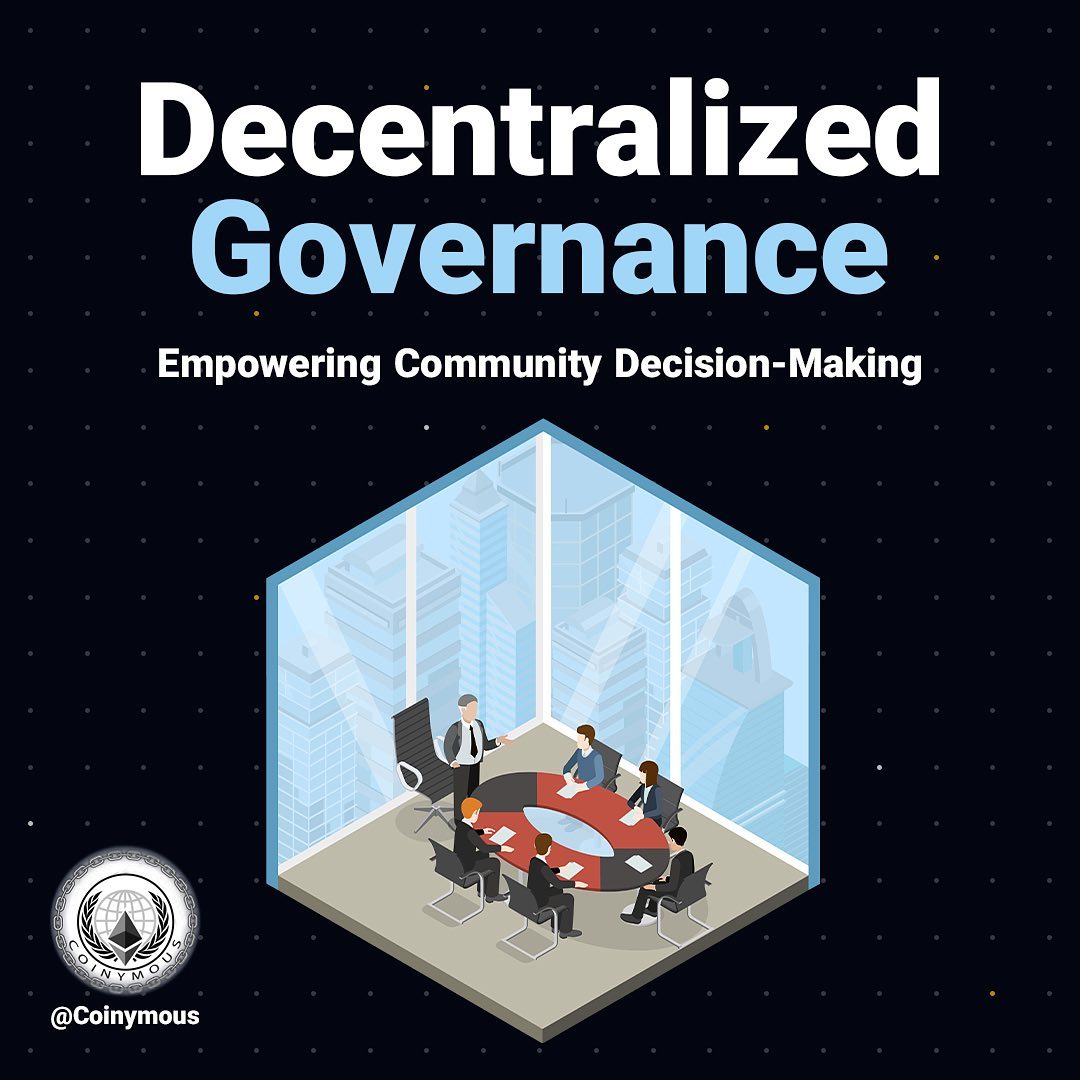Decentralized Governance: Empowering Community Decision-Making 🗳️
Decentralized governance is a system where decision-making power is spread across a community rather than centralized in a single authority. It empowers community members to actively participate in and influence the decision-making process, promoting inclusivity and collective ownership.

Introduction:
In an era of rapid technological advancement, traditional centralized structures are giving way to more decentralized forms of governance. Decentralization has emerged as a powerful concept that empowers communities to have a greater say in decision-making processes. This blog post delves into the significance of decentralized governance, exploring the benefits it offers as well as its potential impact on community decision-making.
Understanding Decentralized Governance:
Decentralized governance, often referred to as decentralized autonomous organizations (DAOs), entails a bottom-up approach to decision-making. It involves distributing the power and responsibilities of decision-making among members rather than concentrating it within a single central authority. This paradigm shift democratizes the decision-making process by involving community members and empowering them with greater autonomy.
Empowering Community Decision-Making:
-
Enhanced Transparency: Decentralized governance embodies transparency at its core. By utilizing blockchain technology, decisions, transactions, and voting outcomes become publicly accessible and immutable, eliminating hidden agendas and fostering trust within the community. This transparency empowers community members to oversee the decision-making process, building a sense of inclusivity and ownership.
-
Greater Participation: In centralized governance structures, decision-making is often limited to a select few individuals, leading to a sense of exclusion among other community members. Decentralized governance introduces a participatory model where every member has the opportunity to contribute to decision-making through voting systems or proposing new ideas. This inclusivity encourages individuals to engage actively, resulting in more diverse perspectives and well-rounded decisions.
-
Efficient Resource Allocation: Decentralized governance facilitates efficient resource allocation by enabling community members to vote on how resources should be allocated. By involving a wider range of perspectives, the decision-making process becomes more comprehensive and takes into account the needs and aspirations of the entire community. Consequently, resources are allocated in a manner that aligns with the community's collective interests, ensuring fairness and minimizing favoritism.
-
Flexibility and Adaptability: Centralized authorities often struggle to adapt to changing circumstances swiftly. Decentralized governance, on the other hand, is inherently flexible and adaptable. As community members are actively involved in the decision-making process, they are better equipped to respond to challenges and seize opportunities promptly. This agility strengthens the community's resilience and promotes innovation.
Conclusion:
Decentralized governance represents a paradigm shift towards more democratic and inclusive decision-making processes. By empowering community members and fostering transparency, it enables diverse perspectives to be heard, leading to optimal decision outcomes. As this concept gains momentum, it is crucial for communities to embrace decentralized governance, harnessing its potential to unlock collective wisdom and drive positive change. Embracing decentralized governance brings us one step closer to a society where power is distributed, enabling each individual to have a meaningful impact on community decisions.